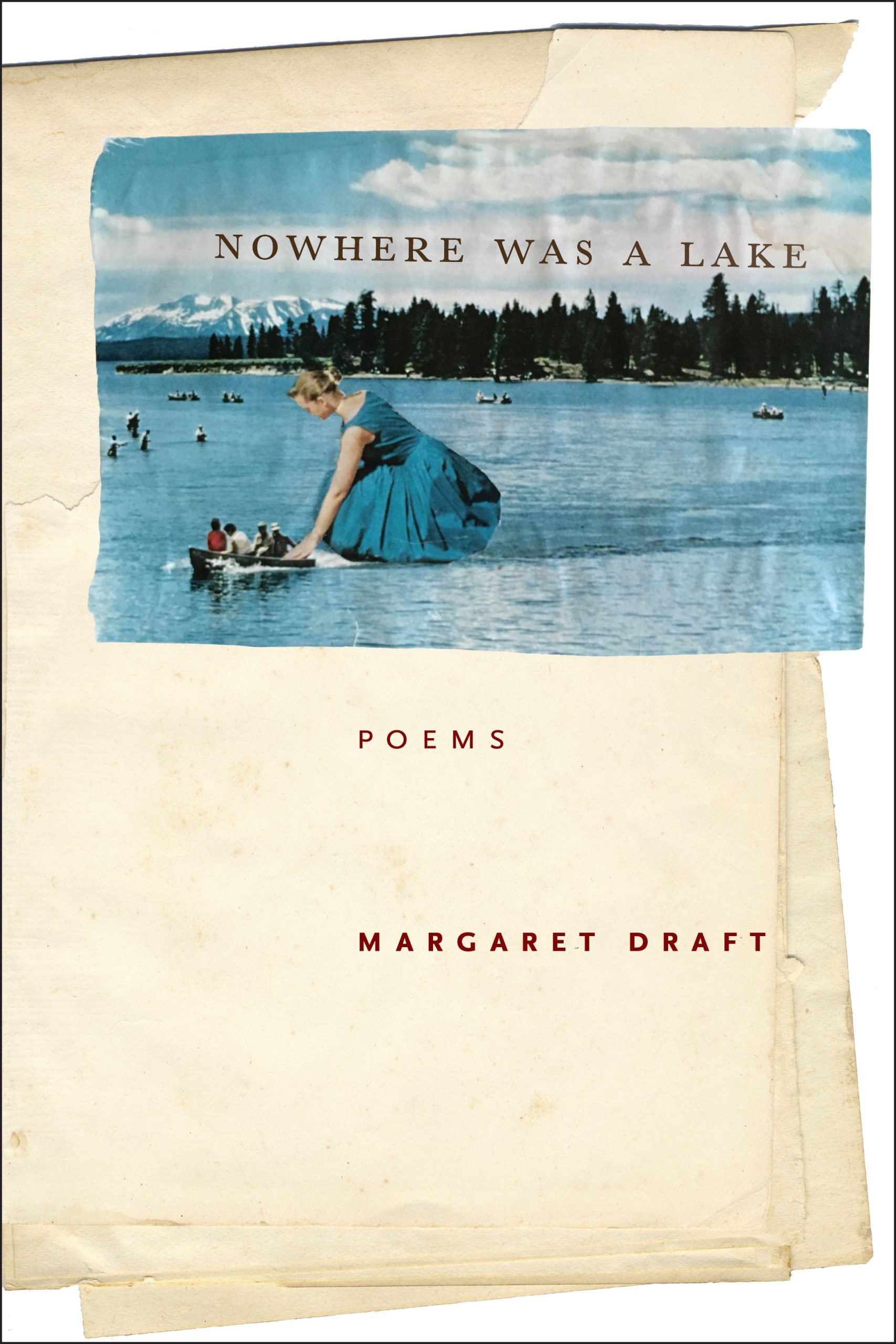
paper • 90 pages • 17.95
ISBN: 978-1-954245-88-4
eISBN: 978-1-954245-89-1
March 2024 • Poetry
Captivated by the simultaneously routine and disruptive nature of violence and desire, Nowhere Was a Lake marks a luminous debut from poet Margaret Draft. “What do you do when a horse dies? / You hollow out the land, // you try to make enough space, / and when you think you have enough, // keep digging.” In these poems, our own tenderness endangers us, and yet – when faced with the enormity of our hunger, an appetite that proclaims both the bounty of nourishment and our capacity for loss – Draft keeps digging. “He said this because // he himself had to enter the hole / with the horse and shovel, // shift the legs, reposition the head.” The speaker here has an unflinching pragmatism, a characteristic that paradoxically makes her emotions all the more tangible. This is how you prospect a grave, she seems to say, but you’ll be in it, too. You with your body among the other bodies. Draft rejects simple binaries, insisting that oblivion can be a place, that fidelity and betrayal can coexist in our most intimate relationships, that to live as a human animal means embodying both hunter and prey. Deft in its exploration of female sexuality, the emotional complexity of polyamory, and the distinction between freedom and abandonment, Nowhere Was a Lake mesmerizes with its erotic pastorals and frank prose poems. “Edge” interrogates “the dialectic of trust” structuring romantic relationships and negotiated through sexual physics: “It is not a question of whether you will / harm me, but whether you will / stick around long enough / to hold me when I am harmed.” The risk and reward of such exploration is uncertainty: anything could happen, but anything could happen. “In no place, going someplace, I know. / There are so few things I can say I know definitively. // But this must be the definition of plenty. / The sun slowly setting over the valley.” And, yes, love may wend through the field as we thresh it. And, yes, we are in the light as it goes down.
“Hand Me That American Spirit”
Because you can never canter
back whence you came,
coming over the tracks, soiling
the rails—
or so I have been told—
but I have been told so many things,
so many half-truths.
How horses, decades dead, are neighing in the pasture.
How strangers lock eyes in a bar every hour,
but rarely are both people changed by this.
In their brevity, in their perfection, these poems feel like our moments as they pass. But unlike life, these poems afford us the opportunity to take that passing slowly, to turn our heads, to observe and feel what otherwise might slip too quickly away. Never do they raise a voice, but Margaret Draft is exquisitely in charge. A magnificent book.
How do we locate ourselves in our longings for love and desire? In our lovers’ eyes? And what do we hope to find in these imperfect and sometimes broken spaces? What happens when we own our decisions? No neat answers in these lines. In these pages, Margaret Draft discards the blindfolds of self-righteousness, of ‘good’ and ‘bad.’ Discomfort is as common as a dead mouse or a dog running laps. What an unexpected and timely trek in the field of fallen horses Nowhere Was a Lake delivers.